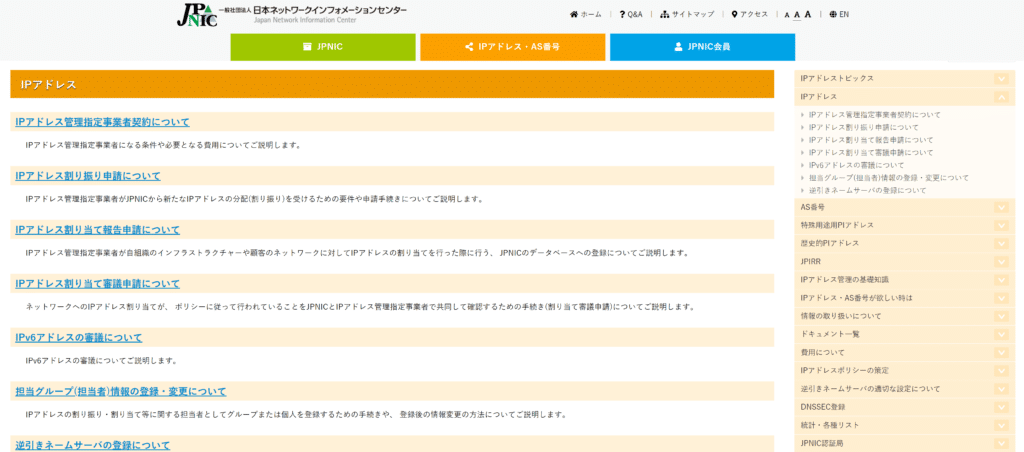How to Identify the Perpetrator Who Posted Defamation on 'Host Love' (Hosurabu)

Host Love (hereinafter referred to as “Host Love”) is used as an information exchange site for all aspects of the so-called night jobs, such as host clubs, water trade, and the adult entertainment industry.
The main service of Host Love is the provision of a bulletin board where users can post various information. However, there may be posts that defame specific individuals or establishments.
In recent years, online defamation has become a social issue. Legal claims such as damage compensation can be made against those who commit defamation, but it is necessary to identify the person who committed the defamation.
In this article, we will introduce how to identify the perpetrator of defamation using Host Love as an example. For information on deletion rather than identification of the perpetrator, please refer to the detailed explanation in the article below.
Related article: A lawyer explains how to delete posts on Host Love (Host Love)[ja]
Defamation in Host Clubs
In host clubs, there may be instances of defamation targeted at specific hosts, hostesses, cabaret club girls, sex workers, or the managers and employees of the establishment.
The motives of those who post defamatory comments can vary. They may be seeking to vent personal grudges, to lower the business performance or sales of others or other establishments, or to derive pleasure from seeing the distress of those who are being defamed.

Negative Effects of Defamation
When defamation occurs, it can have various negative impacts on the person being defamed.
For instance, the person defamed may become mentally exhausted due to the defamation, potentially leading to the development of mental disorders. In extreme cases, this could even result in self-harm or suicide.
Furthermore, the fear caused by defamation could prevent the person from going to their shop, potentially leading to a decrease in the shop’s revenue.
Legal Responsibility of Those Who Commit Defamation
The legal responsibility of those who commit defamation can be considered in terms of both criminal and civil liability.
Criminal Liability
Criminal liability can be considered under the following crimes of defamation or insult.
What is the Crime of Defamation?
The crime of defamation is defined in Article 230 of the Japanese Penal Code (刑法230条).
(Defamation)
Japanese Penal Code Article 230
Anyone who publicly states a fact and damages a person’s reputation, regardless of whether the fact is true or not, shall be punished by imprisonment with work for up to three years or a fine of up to 500,000 yen.
Since the bulletin board of Host Club is accessible to an unspecified or large number of people, it can be considered “public”.
Furthermore, if you are defamed, your social credibility and reputation may be damaged, which can be considered as “damaging a person’s reputation”.
Therefore, if you commit defamation on Host Club, you may be charged with the crime of defamation.
About the Crime of Insult
The crime of insult is defined in Article 231 of the Japanese Penal Code (刑法231条).
(Insult)
Japanese Penal Code Article 231
Anyone who publicly insults a person, even without stating a fact, shall be punished by detention or a petty fine.
If you commit defamation on Host Club, you may be charged with the crime of insult.
Unlike the crime of defamation, the crime of insult can be established even without stating a fact, so it is more broadly recognized.
Civil Liability
As for civil liability, you may be liable for damages based on the following tort.
(Damages for Tort)
Japanese Civil Code Article 709
Anyone who intentionally or negligently infringes on the rights of others or interests protected by law shall be liable for the damages caused by this.
The social evaluation of a person’s credibility is called reputation, and if you commit defamation, it can be considered a tort that infringes on a person’s right to reputation, and you may be liable for damages.
The Need to Identify the Perpetrator of Defamation
If you are considering filing a claim for damages against someone who has committed defamation, you will need to submit a complaint to the court and initiate a lawsuit.
The complaint must specify the ‘parties involved’ (Article 133, Paragraph 2, Item 1 of the Japanese Civil Procedure Law).
Therefore, in order to file a claim for damages, it is necessary to identify the person who committed the defamation.
How to Identify Individuals Who Have Defamed on Host Clubs

The methods to identify individuals who have defamed on host clubs are as follows:
- Request the disclosure of the IP address and other information of the individual who defamed the host club
- If the host club does not comply with the disclosure request, implement a provisional disposition for the disclosure of sender information
- Identify the Internet Service Provider (ISP) from the disclosed IP address and other information
- Request the ISP to disclose the name and address of the individual who defamed
- If the ISP does not comply with the disclosure request, initiate a lawsuit for the disclosure of sender information
We will explain each of the above steps in detail below.
Requesting the Disclosure of IP Addresses of Those Who Have Defamed Hostlove
The first step is to request the disclosure of the IP addresses of those who have defamed Hostlove.
In order to make this request, it is necessary to identify the operating company of Hostlove. Although there is a page for deletion requests on the Hostlove website, there is no information about the operating company.
Identifying the operating company can be a difficult task for the general public, so it is advisable to seek the help of a lawyer who is familiar with online defamation.
Posts on Hostlove can be made anonymously. Therefore, the operator does not know the address or name of the poster, and even if they are asked to disclose the poster’s address or name, they will say, “We don’t have the information, so we can’t disclose it.” Instead, they do keep a record of the IP addresses of those who post, so it is necessary to have them disclose this log.
It would be ideal if Hostlove voluntarily discloses information such as IP addresses when requested, but it is possible that they may refuse to do so because it involves personal information.
In that case, it will be necessary to proceed with the provisional disposition procedure for the disclosure of sender information.
Implementing a Provisional Disposition for Sender Information Disclosure
If Hostlove does not voluntarily disclose information, we will implement a provisional disposition to request the disclosure of information such as IP addresses.
The reason for implementing a provisional disposition lies in the fact that there is little time to identify the poster. With transit providers like Hostlove, it is common for communication logs to be stored for several months, and as time passes, these logs are deleted. If a lawsuit is initiated in this case, it may take time to obtain a judgment, and even if a judgment is obtained, it may become meaningless.
The provisional disposition will yield results in about 1-2 months. The attorney’s fees in this case are,
approximately 300,000 yen for the retainer fee and 300,000 yen for the success fee.
https://monolith.law/reputation/reputation-lawyers-fee[ja]
seem to be the market rate. The above costs are for cases where the disclosure of the IP address and the deletion of the review are requested simultaneously. However, this amount is just a market rate, and the cost may vary depending on the content and volume of the review in question.
Need to Claim and Prove the Illegality of a Post
In order to get a court to approve the disclosure of an IP address through a provisional disposition, it is necessary to prove that the post in question is illegal. According to Article 4, Paragraph 1 of the Japanese Provider Liability Limitation Act, it states that “when it is clear that the rights of the person requesting the disclosure have been infringed by the distribution of infringing information”, it is necessary to claim that there is an illegal point that falls under this.
In some cases, it may be better to simply have the post removed rather than going through the time-consuming and laborious court proceedings. In such cases, you may be able to achieve this by requesting Hostlab.
Even if a post is not illegal, it may be removed if it falls under the posts that Hostlab independently prohibits. In other words, it does not necessarily have to be illegal and legally recognized. In other words, you may be successful in removing the post even if it is not illegal by requesting the site.
The prohibited acts in the terms of use include “defamation or damage to the reputation of a third party, or remarks that may cause disadvantage or discomfort to others”. However, this is merely a prohibited act set by the operator of Hostlab, and such posts are not necessarily “illegal”.
To get the IP address disclosure approved, not just removal, you need:
- A legal claim that the post is illegal
- Evidence to support it
Why the post can be said to be illegal, what kind of evidence should be prepared, etc., relying on the know-how and expertise of a lawyer specializing in reputation damage countermeasures is the quickest way to a solution.
Identifying the Internet Service Provider
If you can identify the IP address of the person who has committed defamation, you can use that information to identify their Internet Service Provider (ISP).
Typically, ISPs hold information such as the name, address, and telephone number of the person who committed the defamation.
Well-known ISPs in Japan include NTT Communications, SoftBank, and KDDI.
If you can identify the IP address, it is possible to search for the ISP. For example, you can use search sites such as the website of the General Incorporated Association Japan Network Information Center.

Requesting Information Disclosure from a Specific Internet Service Provider
Firstly, we request the disclosure of registered information such as the name, address, and telephone number of the person who committed defamation from the Internet Service Provider (ISP).
If the ISP complies with the request and discloses the information, it is possible to identify the person who committed the defamation.
The ISP keeps a log of the name and address of the subscriber who was using the IP address at the specific date and time. Therefore, the next step is to request the ISP to disclose the name and address. However, ISPs do not keep logs indefinitely. In particular, mobile carriers erase connection logs after about three months. Therefore, it is necessary to use a new court procedure to issue an order to the ISP to “prohibit the deletion of the log”. However, in reality, many ISPs will preserve the log if they are notified that “we are going to request the disclosure of the name and address through the court, so please keep the log for a while”. Therefore, in many cases, this part can be covered by notification alone. However, even in this situation, it is necessary to argue and prove how the targeted post is illegal. There is not much information on the internet about the average attorney’s fees for this notification, but it is believed that most cases can be covered with about 100,000 yen.
However, in many cases, ISPs do not voluntarily comply with the disclosure due to the nature of personal information. In such cases, it is necessary to make a legal request.
Related article: What is a “Sender Information Disclosure Request” to Identify the Perpetrator of a Post?[ja]
Regarding Legal Claims
If the provider preserves the logs, the next step is to request the disclosure of the poster’s name and address from the provider. This part is not a quick provisional disposition, but a formal legal procedure. The name and address are, of course, significant personal information. The court, with this issue in mind, only allows the disclosure of the name and address through a formal procedure if it is deemed illegal. The market price for attorney fees for this part varies depending on the content and volume of the post, but according to information on the internet, it is said that
the retainer fee is around 300,000 yen, and the contingency fee is around 200,000 yen
https://monolith.law/reputation/reputation-lawyers-fee [ja]
and so on.
When Internet Service Providers Do Not Comply with Disclosure Requests
If an Internet Service Provider (ISP) refuses to voluntarily disclose information, it may be necessary to initiate a lawsuit and obtain a court judgment.
The law regarding disclosure requests for sender information is stipulated in Article 4 of the Japanese Act on Limitation of Liability for Damages of Specified Telecommunications Service Providers and the Right to Demand Disclosure of Identification Information of the Senders (Provider Liability Law).
There is also a possibility that the ISP may delete the information. Therefore, in some cases, a provisional disposition to prohibit the deletion of sender information may be filed against the ISP either simultaneously with or prior to the initiation of a lawsuit.
By going through the above procedures, it is possible to identify the person who posted the defamatory comments on Hostlove.
Once the person who made the post is identified, it becomes possible to pursue their legal responsibility.
For methods on how to delete negative posts, please refer to the article below.
Related article: A Lawyer Explains How to Delete Posts on Hostlove[ja]
Claim for Damages
If you win the lawsuit, the name and address of the poster who posted on Hosurabu (more precisely, the subscriber of the line the poster was using) will be disclosed. You will then claim damages from this poster for the legal fees (investigation costs) and emotional distress damages you have incurred so far. In this system, if the poster is successfully identified, the claim for damages is recognized, and the amount of damages is compensated, there will be no financial burden on the victim. However, there is a risk whether the poster can be identified and whether the damages can be recovered even if identified. These are explained in detail in the article below.
Related article: Is the hurdle of identifying IP addresses and requesting disclosure really ‘meaningless’?[ja]
Summary
We have explained the methods of identifying the perpetrator who has committed defamation, using Hostlove as an example.
Those who have been defamed will undoubtedly want to identify the poster and hold them legally accountable.
However, as explained in this article, the process of identification requires several steps, and due to the relationship with the information retention period, it is necessary to proceed with the procedures promptly. This makes it quite difficult for the general public to carry out.
Therefore, we recommend consulting with a law firm that is knowledgeable about internet troubles.
Category: Internet





















